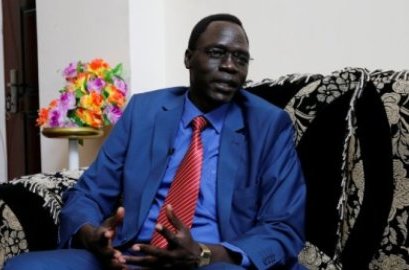UN panel accuses Kenyan MP of inciting violence in S. Sudan
April 25, 2017 (JUBA) – The United Nation Security Panel of expert’s report has mentioned Kenya’s MP, Weston Wanjohi Wahome as an inciter of South Sudan conflicts.

According to the UN expert group, Wahome was prominent among Kenyan politicians who campaigned against the rebels allied to Riek Machar in the neighbouring East African countries.
In several Facebook posts, Wahome referred to himself as the regional coordinator of the “Friends of South Sudan in East Africa”.
Cécile Pouilly, the United Nations Refugee Agency (UNHCR) spokesperson stated, “Mr Dak had previously been granted refugee status by the Kenyan authorities. Mr Dak’s forced return is a violation of the principle of non-refoulment, which is the cornerstone of international refugee law.”
In January this year, two South Sudanese, Aggrey Idris and Dong Samuel Luak, disappeared in Nairobi. Human Rights Watch said, “it is believed that the men have been abducted by or at the request of Southern Sudanese officials and taken illegally to South Sudan, where they are likely to have been abused as so many other detainees before them.”
Prior to the deportation of Dak, Wahome mocked him on Facebook, posting “I never thought someone could sweat in cold weather. Safe journey back home and say hi to Mathiang Anyoor!”
Mathiang Anyoor, are militias allied to the government and mostly recruited from the tribe of President Salva Kiir who is a Dinka.
According to U.N experts, groups said the MP’s Facebook page regularly posted veiled threats and incitement against South Sudanese opposition groups that live in Kenya.
The New-York based Human Right Watch said the disappearance of South Sudanese citizens Luak and Idris was connected to the national security service.
The South Sudan’s government has however denied having kept them in their custody, despite their presence in their security headquarter in Juba and later their transferral to an unknown location.
UNHCR considered the deportation of the rebel leader spokesperson “illegal”.
(ST)
